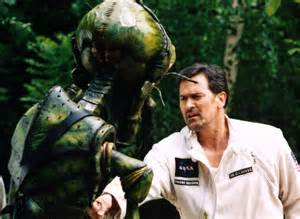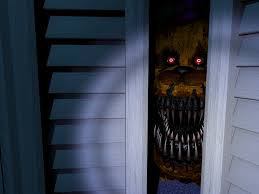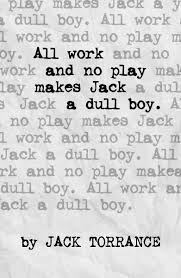Writer’s Workshop Wednesday VII
R. LEE SMITH’S SIMPLE EIGHT-WEEK SYMPOSIUM ON THE ART OF STORY-TELLING:
WAT R WERDS?
Lesson 7. Burnout, Blocks and Bad Reviews—The Pitfalls of the Writer’s Craft
Good morning, class! Welcome back! Hope you had a great weekend doing whatever it is you kids do for fun these days, going to the movies or the beach or just curling up with a good book. Anyway, I hope you’re all refreshed, because today, we’re going to cover some of the darker territory in the wonderful world of writing. Last week…
Oh. I see we have a new student. You’re joining us kind of on the late side, aren’t you? Well, it’s a free class, so you’ll still be getting your money’s worth. Welcome to the symposium. Go on and have a seat. There’s an empty chair over there. Hmm. Do I know you? Are you sure? You look…familiar…

Especially around the nose…
What did you say your name was? Coraline? What an unusual name. Well, have a seat and let’s start the lesson!
Last week, I mentioned the inspiration behind my book, Cottonwood. I won’t recap it—you know where to find it if you want to refresh your memory—I’ll just say that, a few months after the book was written, but well before it was published, a little summer surprise blockbuster called District Nine came out and dick-slapped me in the face.
If you haven’t seen District Nine, you really should. It’s amazing. It also makes Cottonwood look like weird, bug-loving fanfiction. I mean it. Every single element I had envisioned for Cottonwood is also in District Nine. The bug-like aliens, the internment camps, the Heaps, everything. I shit you not, the hero-bug even has a kid. The actual stories have nothing in common, but anyone who saw District Nine and then read Cottonwood probably did so snickering up their sleeves at how audaciously I tried to rip off a major theatrical release just by changing a few names and throwing in some sexin’.

As previously stated, I actually ripped off Alien Apocalypse.
I came home after watching District Nine, picked up my printed manuscript of Cottonwood, and dropped it in the trash. My long-suffering sister took it out again and told me to get over myself. She’s full of good advice like that. Always has been. Still, it took her about six months to convince me to publish it and even now, I can’t reread that book without cringing a little at what seems to me to be obvious, if wholly accidental, plagiarism.
Lest you think I’m being too cavalier about the P-word, let me tell another story. One of my betas was accused of plagiarism by a totally anonymous reviewer on Amazon, who claimed that the story had been copied from some other book she had read because, get this, it was a Time-Travel romance. And that was apparently so unique that every other Time-Travel romance in the universe was plagiarism. My beta’s initial reaction on reading this review was to roll her eyes so hard her retinas nearly detached and get on with her day. However, she was forced to reconsider said attitude when Amazon banned her fucking account.
It took her months, literally months, to clear her name and even so, she had to re-title, re-cover and resubmit all her books before Amazon’s search engine would allow them to be seen by casual browsers. And that, folks, is why people like me are perhaps a wee bit hypersensitive to possible plagiarism. I’m not James Cameron. I’m not even Shia LeBeouf. I can’t just swagger down the street, secure in the knowledge that my lawyers can handle any disputes while I’m back-stroking through a swimming pool full of cash McDuck-style. I’m an indie author; an anonymous, unfounded, patently absurd claim in a one-star review can kill my career.
As an ironic prequel to my beta’s plagiarism woes, a couple years before the Time Travel romance purist sewed the scarlet P to my Beta’s chest, some batshit crazy teenager took one of my beta’s books and turned it into Twilight fanfiction, then posted it on a fanfic site. I mean, she seriously changed just the title and the names. And the names, let me repeat, were Twilight characters, and the title was lifted word for word from another movie. So literally NOTHING in this book was her own work.
When this was brought to my beta’s attention and my beta told the site to take it down, all the plagiarist’s friends rallied to her support, calling my beta—the actual author—a ‘hater’ who ought to ‘be flattered’ that the plagiarist had taken her ‘unknown story and turned it into something wonderful’.

Something wonderful. Apparently.
Finally, one of the plagiarist’s loyal supporters actually read my Beta’s book and did an about-face, but let me repeat the keyword there: finally. As in, after weeks of drama and hate mail and an army of twi-fans bombasting every book she had published with one-star reviews.
This is the reality, folks. This is the world we live in—a world in which you are simultaneously beset by accusations of plagiarism against which you cannot defend yourself, whilst struggling to reclaim your work from plagiarists against whom you cannot defend yourself.
So what can you do about it, you ask? Well, you can protect yourself legally to some degree, but the bottom line is, in every job—heck, in every day—there is some risk. Writing is no different, so today, we’re going to look at some of the more common pitfalls that we writers may encounter in our career and how to combat them. And hey, since we’re already sort of on the subject, let’s talk about bad reviews.
For self-published authors like me (for all authors, I guess, but even more so for indies), waiting for that first review is nerve-wracking. Buying a book is like buying anything else in a consumer market—you want to know what you’re getting and you want your money’s worth. If you have a choice between two books and one of them has fifty 5-star reviews and the other has none at all, odds are damn good you’re going with the first one, even though we all know people’s tastes are different, and for that matter, those reviews might have been bought. The fact is, there aren’t a hell of a lot of ways to research a book without reading it, and not a lot of ways to read a book without buying it, and that brings us full circle to not wanting to spend your hard-earned money on a book unless you know it’s going to be good. Readers rely on reviews to help them make a determination, and so writers rely on reviews to help them net readers.
Now, everybody’s going to get a bad review now and then. And I’m certainly not going to tell you not to feel bad when it happens, since I have been known to sit in an unlit closet and cry into the warm purring side of a long-suffering cat when I get the slightest smear of shit in an otherwise rosy review, but I am going to tell you the secret to how to defend yourself against attacks by readers who either misinterpreted your story or flat-out wagged the dog for their own agenda. Are you listening? Got your pens? Good. Write this down.
Don’t.
Do not—absolutely, positively, under no freakin’ circumstances whatsoever—defend yourself. It does not matter what they say or how viciously they say it, you keep your mouth shut, pick up your cat, go into your closet, and shut the door.

Just make sure the closet is empty first.
You’re all reading this on the internet, so I think it’s safe to assume we’ve all seen flame wars erupt, either because strong opinions were challenged or a bored troll was having ‘fun’. Hell, one of the worst flame wars I ever personally saw was between two people (at first) who actually agreed with each other on the original issue, but just managed to misunderstand one another’s phrasing to the extent that suddenly, everyone’s a cocksucker. Because that’s the thing about flame wars. They’re really easy to start, and damn near impossible to put out. In researching this post, I just had to go to YouTube, click on the first video recommended to me and the top-rated comment was a flame war whose main opponent CAPSLOCK-yelled some variation of “I’m done arguing with you”—I counted—seventeen times, and since the last post was less than ten minutes ago, I seriously doubt he’s really done. No one is going to win that war. No one wins any flame war. And no one ‘wins’ a review war.
Look, the thing about publishing books instead of bricking them up in your basement with your crazy cousin Tibalt is that it’s a public forum. You invite public opinion. And opinions are, as I’ve said, subjective. So it’s really not about whether a reader ‘got it,’ but about whether they liked it. And not everyone’s going to like it. And—I can’t stress this enough—they don’t need a good reason. I don’t like caramel-flavored creamer in my coffee. Caramel is a perfectly good flavor. I like it on its own. I like it in my cookies and candy bars. I don’t want it in my coffee. If asked, I will tell you straight-up that caramel creamer sucks. Does it suck? Does it really? Probably not. My sister, Cris, loves caramel creamer. Is she wrong? Does she suck? No. We have two different opinions on the subject of caramel-flavored creamers and that’s all. If we were ever approached in a grocery store and asked to recommend a flavored creamer, she is entitled to recommend the caramel creamer and I am entitled to gag and make barfing noises, but I guarantee that if the creamer people were to get up in my face and tell me all the reasons I just didn’t understand their caramel creamer, they would look like the asshole. So if you don’t like bad reviews, don’t read them. And if you read them anyway and you come across a bad one, just say, ‘Hey, it’s a caramel creamer thing,’ and take your cat to the closet.
Continuing on with our theme of writers’ greatest fears, we come to a little thing called Writer’s Block. Or, to be more accurate, Writer’s Blocks.
As with so many things in life, finding the solution means figuring out just what the problem is first. There as many reasons why writers suddenly find themselves unable to word properly as there are reasons why they write in the first place, so I won’t attempt to list them all, just the ones I’ve either heard about the most or personally experienced, and of course, the biggest elephant in that particular room is Fear.

Not this kind. I actually find this kind fairly inspiring.
Probably the biggest reason an aspiring author never moves past the aspiring stage is fear about what other people will think. And I’m certainly not immune to it, even after nine (published) novels. In fact, I could list my books by the fears I had about publishing them and my readers could probably figure out which ones they are.
“No one is going to want to read a book about two people having the same argument for seven hundred pages.”
“No one is going to want to read this. It’s just The Lion, The Witch and the Wardrobe with sex and guns.”
“No one is going to like it if she doesn’t get with someone by the end of the book.”
“They’ll think I’m advocating rape.”
“They’ll think I’m dumping on religion.”
“They’ll think I’m weird.”
…Okay, that last one could have been any of them, but you get my point and the point is, you can’t allow your inner critic to become your only voice. There’s an old saying about singing like no one’s listening, dancing like no one’s watching and loving like you’ll never get hurt. To that, I add, write like no one will ever read it.
But sometimes it’s not about fear at all. You started the book when you had all these great ideas and now you’re sitting and staring at either a blank page or a blinking cursor, typing and erasing the same ten words for days on end.

And you’ll still never do it better than this guy.
There are a lot of reasons why a writer will hit the white wall, but I can tell you that every time I’ve personally done it, it’s been because I was trying to force my characters to act out of character or go somewhere they had no reason to be or wander away from the story just to sneak in a clever line. In short, it was always my fault and subconsciously, I always knew it. Over the years, I’ve developed what is for me a fool-proof means of breaking down the white wall, and that is to go all the way back to the beginning and start reading. I keep myself immersed in the world, build up my momentum again, and invariably feel that subtle shift when the story goes off the rails. Which is not to say that it’s always easy to reverse and put it back on track, but I will say it was always necessary, no matter how tedious or painful it might be at the time.
Now let’s say you’ve gone back and forth over your unfinished book a thousand times and the tracks lead nowhere but straight up to that wall. The characters you loved have become strangers; the plot that seemed earth-shaking when it came to you in the night now goes nowhere. You still want to write it, you still think you can, you just have no idea where your book went. What do you do?
Find it.
“But I’ve looked!” you wail. “I did just like you said! I went all the way to the beginning and followed it all the way here, and it’s just gone!”
Well, trust me, it’s not on Facebook or following you on Twitter, so don’t even bother checking there. And don’t wait until it feels inspired enough to show up on its own, because it won’t. If it’s gone, you have to find it. If you want to find it, you have to look.
So look. Go for a walk. Go for a drive. Pack a picnic and find yourself a waterfall. Take the dog swimming at the lake. Think about everything you see and how you would describe it in words. Forget your characters for now and think about the ones you see every day. Look at that guy over there, the one carrying a backpack in both hands. What’s in it? A bomb? A priceless Qing vase? A ceramic garden gnome? A living garden gnome? Write about it–not a story, not even a scene, just that guy and that backpack. Get outside of your comfort zone. Do you write horror? Try writing a short romantic scene. Do you write romances? Try your hand at horror. Write fanfiction for a source you love. Write fanfiction for a source you hate and find out what it takes to love it. Look at your husband/wife/cat and remember why you love him/her/it. Look at your story and remember why you love it. Start writing an outline if you don’t use one. Throw away your outline if you do. Set a routine. Break your routine. Make a playlist to use as a soundtrack for your book. Put on a movie you’ve seen so many times you don’t even need to look at it anymore, then sit with your back to it and start writing. One word. One sentence. One paragraph. One page. Just write and don’t worry about if it says everything you want it to say or even if you’re going to keep it. Write and keep writing until you find the book. No, it’s not easy. Who told you it was going to be? Just keep writing.

Real art comes from chipping away at that block, day after day.
But what do you do when you can’t even find the block, let alone the words inside it? What do you do if there is no white wall, no tracks to follow? What do you do when there’s just…no story?
When it comes to fears of a writer, just about nothing compares to the lurking midnight dread that one day, you’ll wake up and just be empty, all your tales told, all your voices gone silent. As I’ve said before, I have a number of story ideas tacked up on the old Story Board in my office and for now, it feels like there will always be more books in my head than my hands can write, but even I sometimes hear that dust-dry whisper that tells me it won’t always be that way, that I was given a finite number of stories to tell, that I’m burning through them and someday, I’ll burn out.
I’m an imaginative person, but I can’t imagine that–having nothing to think about on long drives, no witty banter to play out with myself in the shower, no ‘what if’ scenario to liven up a cheesy sci-fi movie. No, I’ll just be driving, showering, watching TV.
I imagine that’s what death must be like. Not a blackness, but a blankness.

They look like such big, strong hands…don’t they?
I confess that I believe Writer’s Block to be largely a state of mind, but Burnout is real. I’ve seen it happen. It’s happened, in some small shadowy way, to me.
Once upon a time, a long long time ago, I used to ghostwrite for a epub site. For the purposes of this story, we’ll call it $oulkiller Book$, or $$ for short. At $$, my job was to finish books started by other people. I made a flat fee of, I think, seven cents a word; the original author made royalties. My name never appeared anywhere on the finished book and I’ll be honest with you, most of the time, I was glad. These were not fun books to write, for a number of reasons, not the least of which being that they weren’t stories I wanted to tell. I did a good job, I think, and I made enough of a living to pay the bills, but in order to do so, I had to write, like, a LOT.
I wrote several hours each day, in someone else’s voice, with someone else’s characters, on someone else’s book. On rare occasions, I supplemented my payday by writing commissioned work for the site under a pen name, because I did not and still do not wish to be associated with those books. It was arduous, loveless, mostly mindless work, and when I sent off the finished product, I usually got the next assignment in my Inbox the same day.
I am very grateful still to the owner of the site for the opportunity to work there, but I can honestly say I’d rather sell my used underwear on Craigslist than ever do that again. I have not added them all up, but I estimate I wrote over a hundred stories, including around two dozen novels, for $$, and there ultimately came a time when I realized that, apart from the $$ stories, I wasn’t writing anything. I had not, in fact, written one word on one of my own books, in over three years. I hadn’t even thought about them. The stories were gone, the characters were dead, and I was empty.
Through a lot of hard work, misadventures, and divine intervention, I was able to turn myself around, relight the spark, and start writing books that were not only profitable enough to allow me to do it for a living, but that I was proud to have my name on.
So I guess what I’m saying is, Burnout is real…but even it doesn’t have to be the end. You can’t just force yourself through it like with the old white wall, but you can clear away the ashes and start a new fire. It’s not easy. It’s not painless. But it can be done.

And the best part is, you can read by the light.
Well, we’ve about come to the end of it, class. Next week, I’ll leave you with some final thoughts and then it will be back to my usual schedule of blogging…which is to say, whenever I think about it, probably with at least one six-month block of silence, followed by a flurry of apologies.


 newest »
newest »




I think the biggest fear for me when it comes to writing is fear itself. That half written story/stories that you come back to look at after a few weeks later and say "hell, that's just [insert name of any stonking good read you haven't a hope in hell of achieving] , but oh sooooo badly written..." Or "why did I start this. Was I high?? What was I thinking???"
Just wondered if these are right:
They'll think I'm weird - every last one of yer books.... Thankfully!!!
Dumping on religion -the Gann-tastic 'Raq & Amber
Advocating rape -the Gann-sters, also the hot-as-all-get-out Heat
(btw who's the hunk on the cover...? So looks like sexy Star Trek Spock, Zachary Quinto...)
No HEA for her at end of book - Olivia
Finally, just a comment as I sit at the front of the class (I've really bad eyesight)... Am quite worried for the rhinoplasty -challenged newbie who came today the course. So, although they may be able to cram the prior weeks she/he(?) missed, maybe we can get you to give a recap - yknow, a kind of: 'if y'all forget everything else remember THESE 8 points' included in next week?
So, maybe I need to get a burly carpenter to build bigger closet before I start writing, but first... off to get a very purry long haired cat to practise stroking for comfort. No. Oh my dayz...why does that all sound so, so wrong (*hurriedly leaves class hugging notebook, shaking head in abject defeat*)